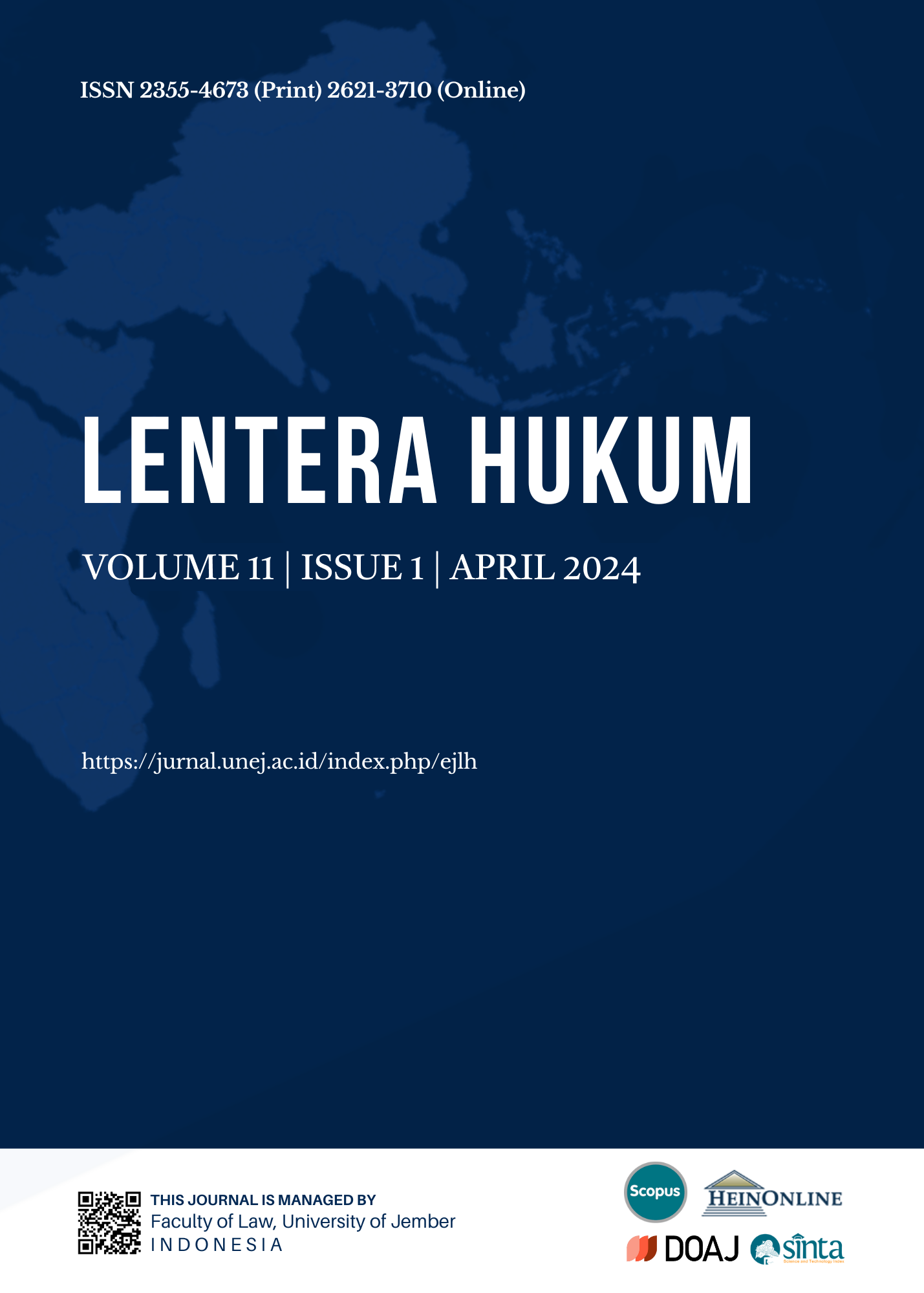Equality, Affirmative Action, and Economically Weaker Sections in India
DOI:
https://doi.org/10.19184/ejlh.v11i1.45880Abstract
The Indian Parliament has brought about various measures of positive discrimination to address social inequalities. One such measure taken by the Indian Parliament was amending the Constitution of India in 2019, creating a category of ‘economically weaker sections’ to make special provisions for them. This article aims to assess the politico-legal issues surrounding the policy of reservation for the economically deprived classes. The article employs the doctrinal method to study the policy and critically analyses the Janhit Abhiyan v. Union of India (2023) 5 SCC 1 judgment where the Supreme Court of India upheld the constitutionality of the Constitution (103rd Amendment) Act 2019. The article analyses the arguments of parties and opinions of the Court against two major constitutional principles – the promotion of substantive justice by relying upon a comparative conception of equality and securing the identity of the Constitution by adhering to the basic structure doctrine. This paper argues against restricting the application of basic structure doctrine to cases where the ‘essence’ of the structure has been stripped. Such restriction may curtail the ambit of application of the doctrine, and it may adversely affect the enjoyment of fundamental rights. The interpretation that reservations are an exception to the principle of equality, rather than an extension thereof, runs contrary to the notion of equality conceived by the Constitution and grants them a contingent legitimacy. If the ‘essence test’ is accepted for the application of basic structure doctrine, then the perception of reservation as being non-essential to equality also protects such policy measures from basic structure review.
KEYWORDS: Equality, Reservation, Economically Weaker Sections, Basic Structure Doctrine, Affirmative Action.



